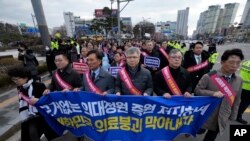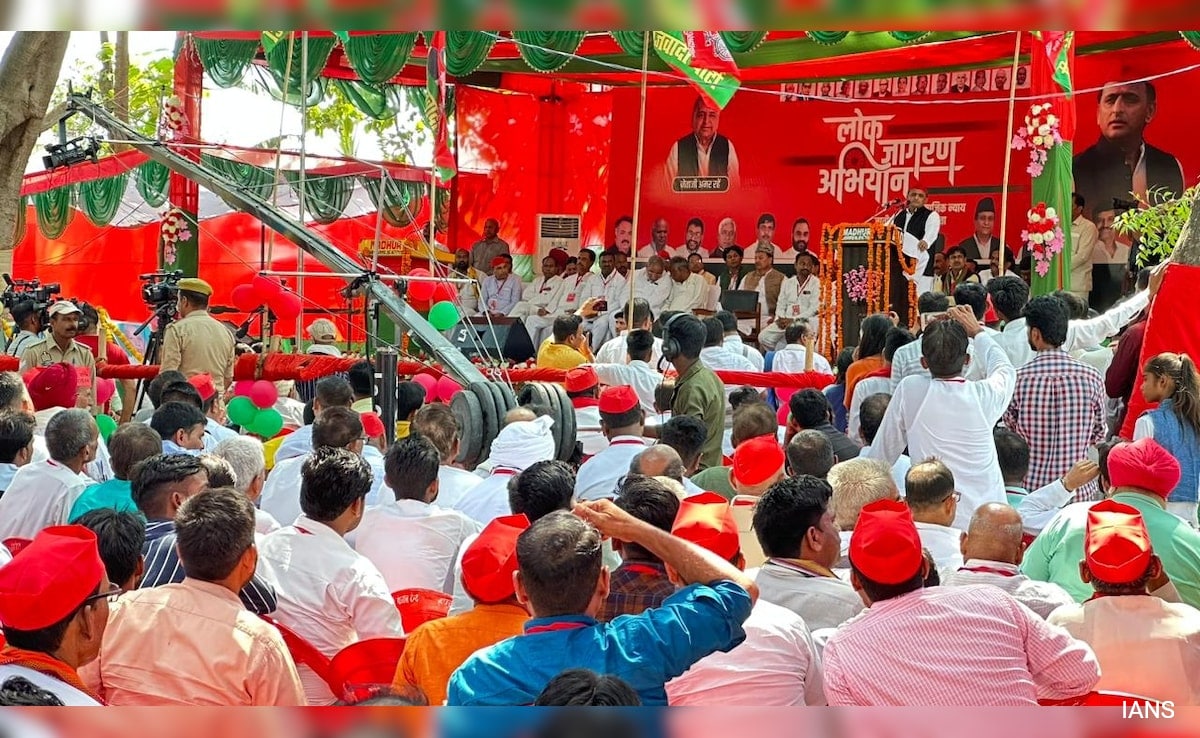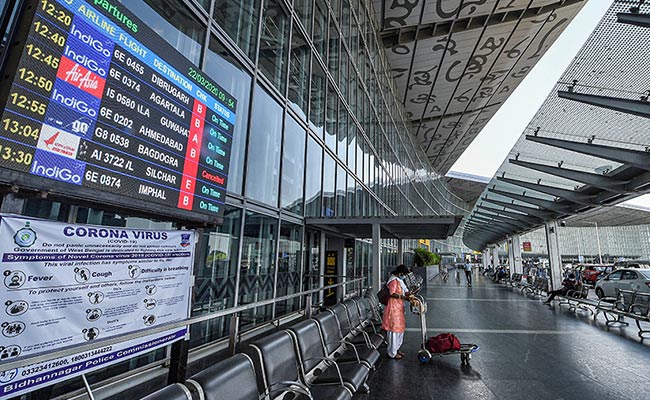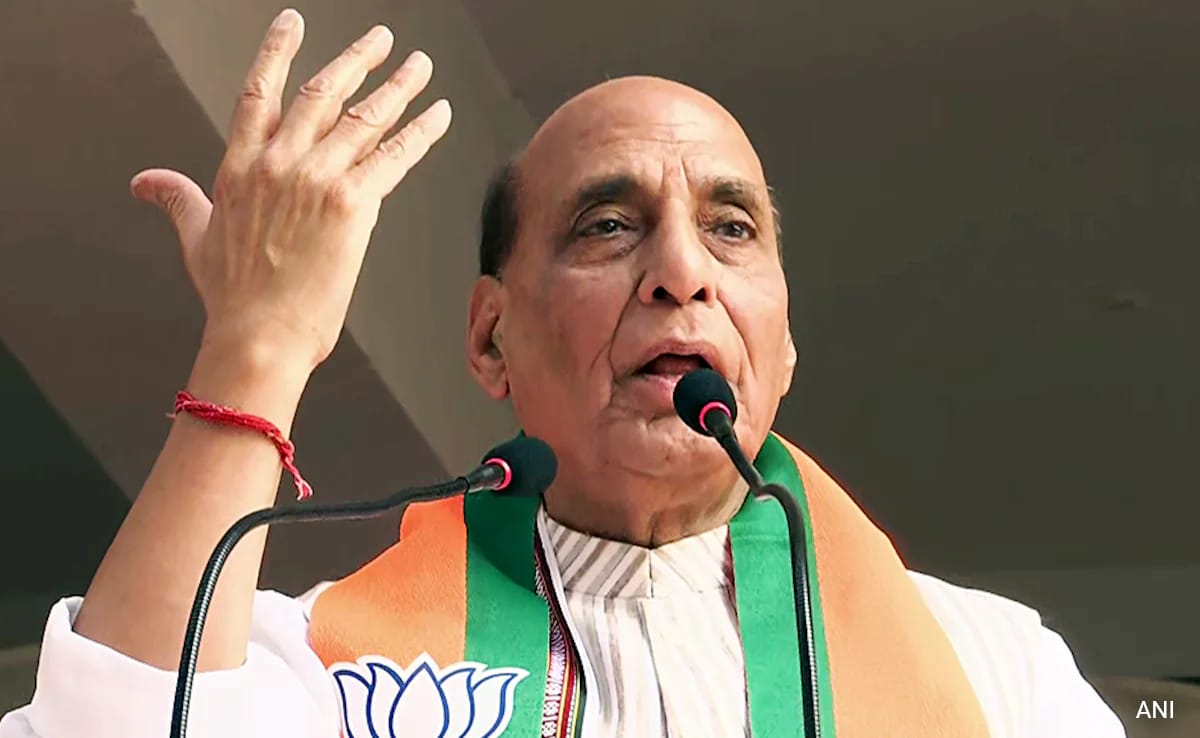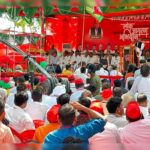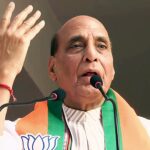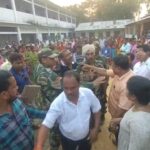South Korea’s government made a final appeal to junior doctors to end their strike just hours before Thursday’s deadline, with many expected to ignore orders to return to work and risk losing their medical licenses and being prosecuted.
Thousands of medical interns and residents have been on strike for about ten days to protest the government’s push to increase medical school enrollment. Government officials warned strikers would face legal consequences if they did not return to hospitals by Thursday.
As of Wednesday evening, some 9,076 of the country’s 13,000 medical interns and residents were confirmed to have left hospitals after submitting their resignations, according to the health ministry. It is said that 294 strikers have returned to work.
As of 6pm (0900 GMT) there was no news of anyone else returning to work.
Observers say many strikers may violate the deadline, extending the labor boycott for weeks or months. Since Friday is a national holiday, the government is expected to formally impose penalties starting on Monday.
“We have said that if they come back today, we will not hold them accountable for leaving the workplace,” Vice Health Minister Park Min-soo told a news conference. “Doctors serve patients, and patients are waiting for you anxiously. This is not a way to protest against the government.”
Park Geun-hye met with some of the striking doctors at a building in Seoul late Thursday, but the contents of their discussions were not immediately made public. Parker said earlier that officials invited 94 striker representatives to the meeting via a group text message. It was unclear how many doctors attended the meeting.
Ryu Ok Hada, one of the striking doctors, told reporters he would not attend the meeting. He accused the government of “treating striking junior doctors like criminals and inflicting humiliation on them”.
Senior Health Ministry official Kim Chung-hwan said in the same briefing that starting March 4, the government will notify doctors who miss the deadline of plans to revoke their licenses and give them a chance to respond.
Under South Korean law, the government can order doctors to return to work if they find a serious risk to public health. Those who refuse to comply with such orders may have their medical license revoked for up to one year and face up to three years in prison or a fine of 30 million won (approximately $22,500). Those sentenced to prison will have their medical licenses revoked.
Some observers said authorities may only punish striking leaders to avoid further straining hospital operations.
At the heart of the dispute is the government’s plan to admit 2,000 applicants to medical schools from next year, an increase of two-thirds from the current 3,058. The government says it aims to add 10,000 doctors by 2035 to cope with the country’s rapidly aging population. Officials say South Korea has one of the lowest doctor-to-population ratios among industrialized countries.
But many doctors rejected the plan, arguing that universities were not ready to provide a quality education to so many new students. They also said government plans would not address chronic shortages of doctors in important but low-wage specialties such as pediatrics and emergency departments.
But their critics say the striking junior doctors are simply concerned about falling income expectations due to a sharp increase in the number of fellow doctors. An opinion poll shows the government’s plan is widely welcomed by the South Korean public.
“Doctors have to cure patients. If they are all gone, who will treat them? Everyone will die,” said Kim Young Ja, an 89-year-old housewife near a hospital in Seoul.
The country’s 13,000 trainee doctors make up only a small portion of South Korea’s 140,000 doctors, but they account for about 30%-40% of the total number of doctors in some major hospitals and perform many important functions supporting senior medical staff.
The doctors’ strike resulted in the cancellation or delay of hundreds of surgeries and other medical treatments at hospitals, according to the health ministry. The Ministry of Health said that as public medical institutions extend their working hours and military hospitals open emergency rooms to the public, the handling of emergency and critically ill patients across the country is basically stable.
But experts say South Korea’s medical services will suffer serious damage if senior doctors join the strike by trainee doctors. The Korean Medical Association, which represents the country’s 140,000 doctors, said it supports the intern doctors but has not yet decided whether to join the strike.
A 60-year-old patient who was diagnosed with breast cancer six weeks ago said she hoped the strike would end soon so her treatment could go smoothly.
“Only by receiving cancer treatment at the right time, my cancer will not get worse. Therefore, I hope that the intern doctors can return to work as soon as possible to normalize hospital operations.” The woman surnamed Yu said, for privacy reasons, She wished to be identified only by her last name.
Follow us on Google news ,Twitter , and Join Whatsapp Group of thelocalreport.in
